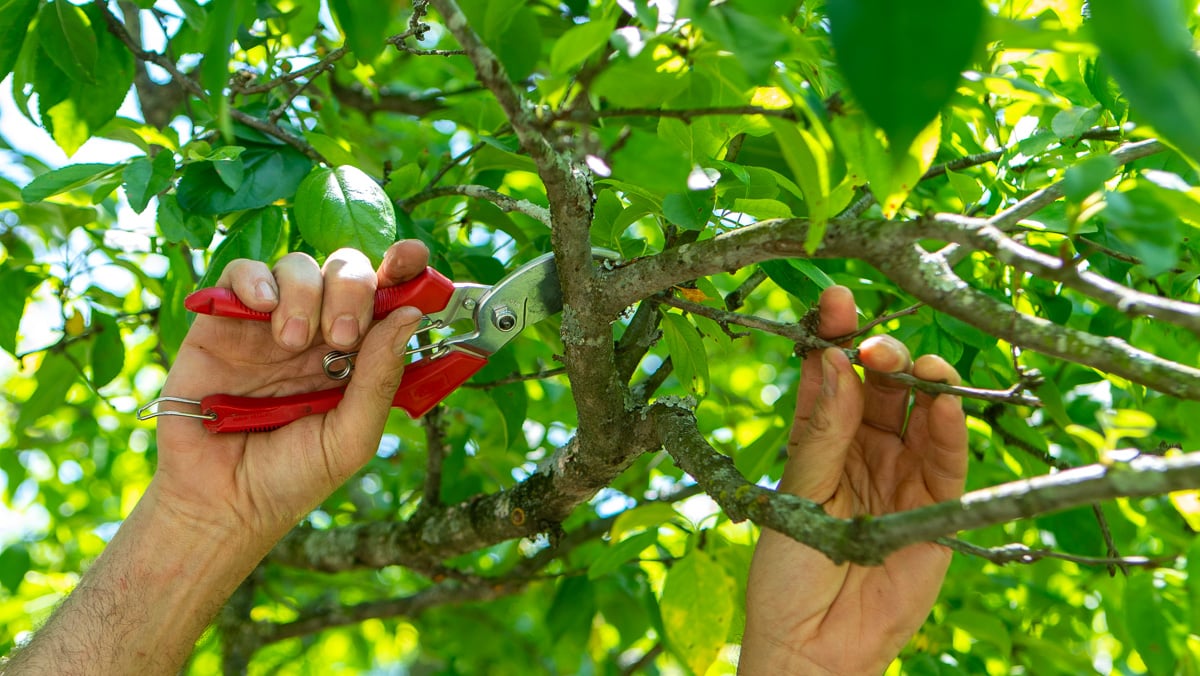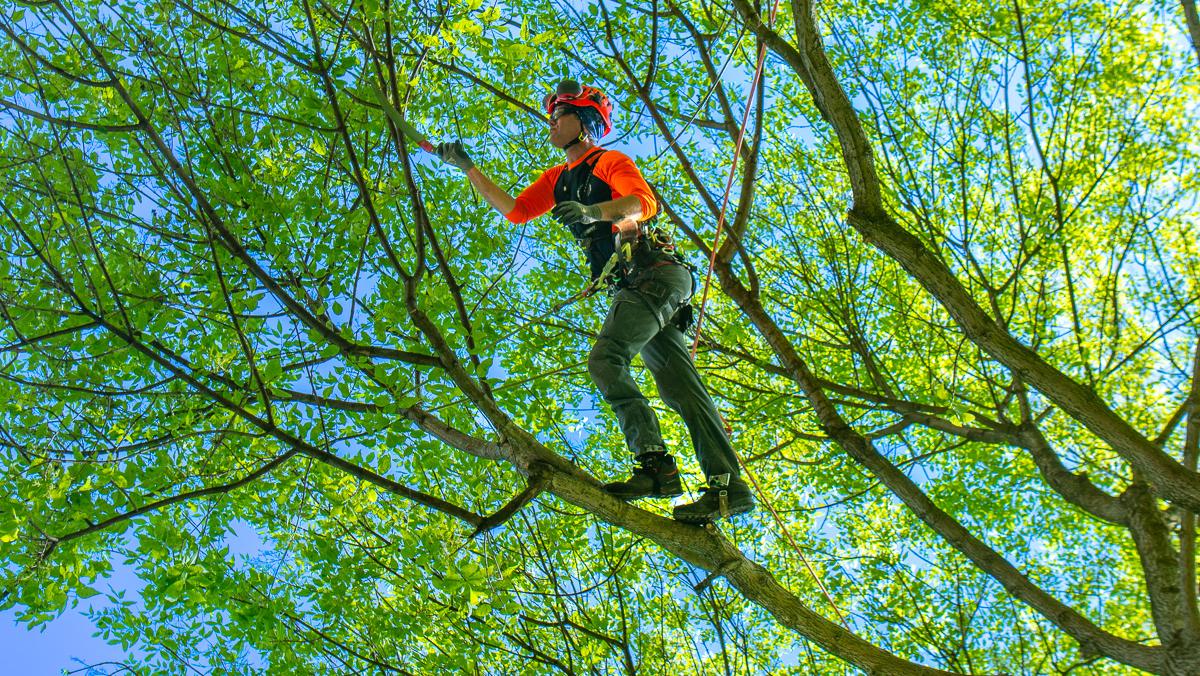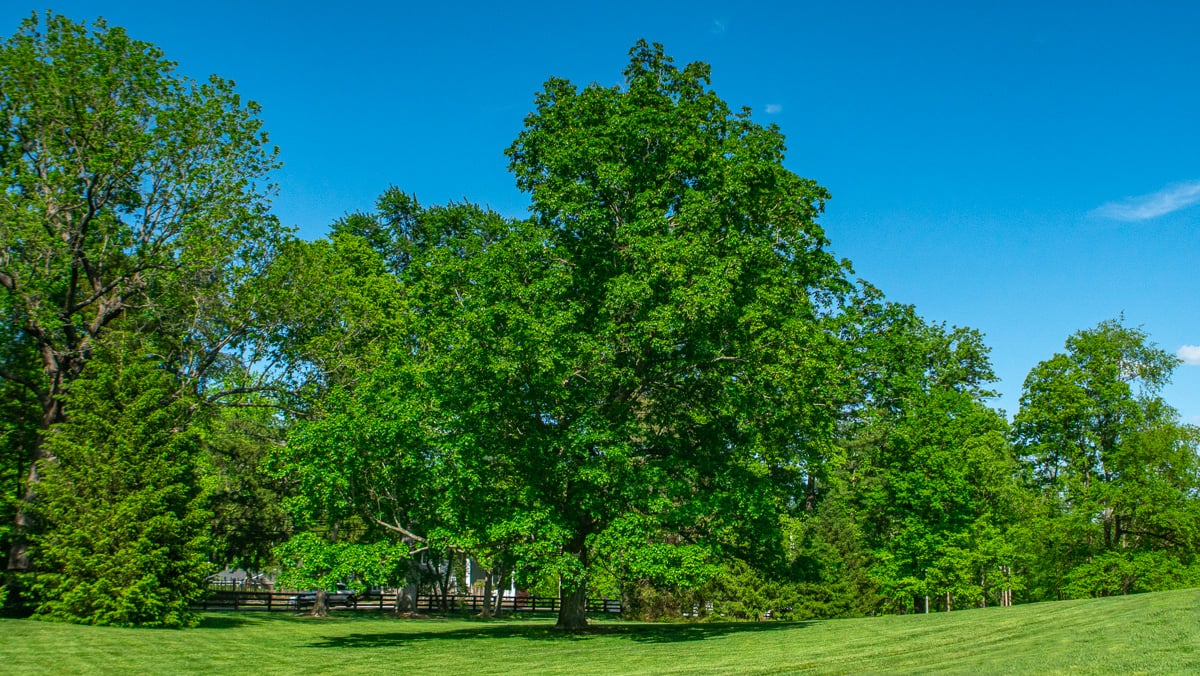

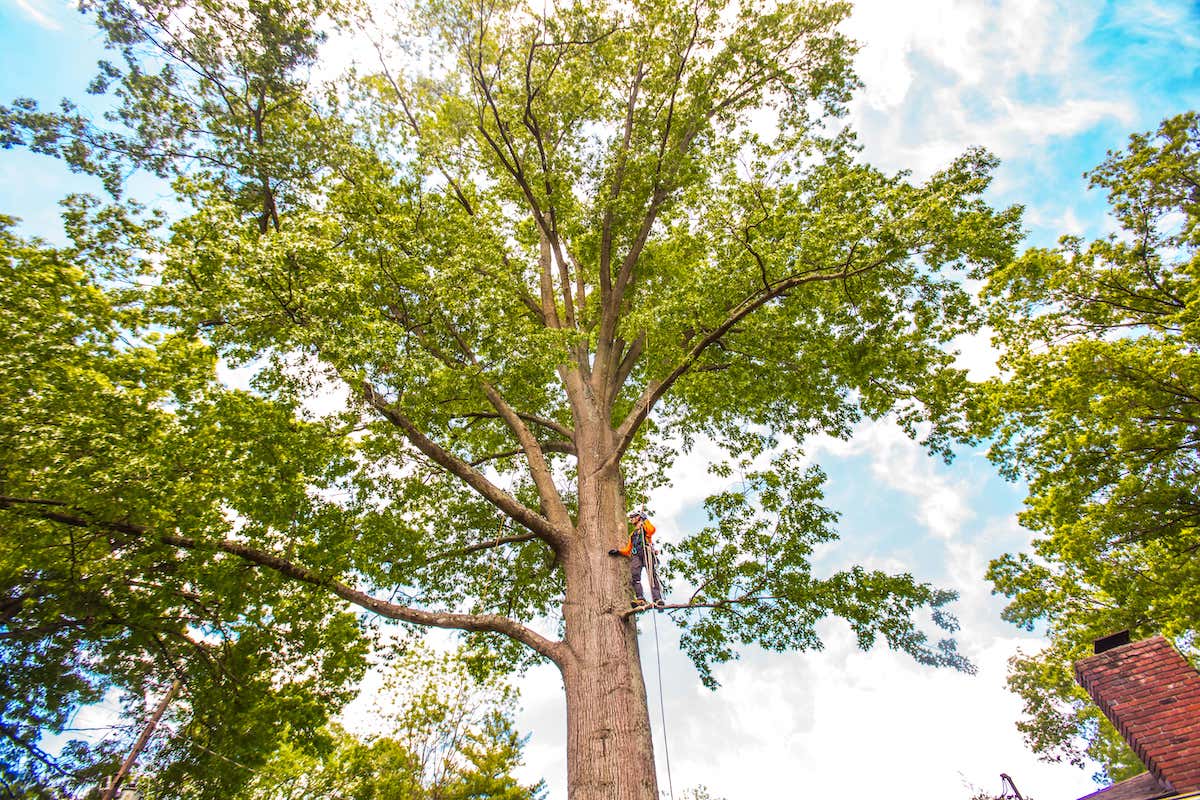
Trees face all sorts of threats every single day and most of the time, they fare pretty well. Many species of trees are adaptable and resilient…but some tree problems are more aggressive than others. Tree pests, for instance, have the ability to do a lot of damage, depending on what you’re dealing with.
One such pest group is tree borer insects. These are chewing insects that feed on the bark of trees. Most species of borers in trees are the larvae of beetles but there are some other wood-boring insects that can do damage such as certain types of caterpillars and moths.
In this article, we’ll talk about some of the signs that you may have borer beetles (or possibly another wood-boring insect) and what you can do about it.
Anytime that you’re dealing with a tree problem, the goal is to take care of it swiftly, before it can do too much damage.
Because tree borer insects feed inside of the tree, you’re more likely to spot signs of a problem than the insect itself.
Typically, the first sign that you have borers in trees is sawdust on or around your tree. This is left behind from when the borer ate its way inside. You’ll likely also see the holes that these insects create.
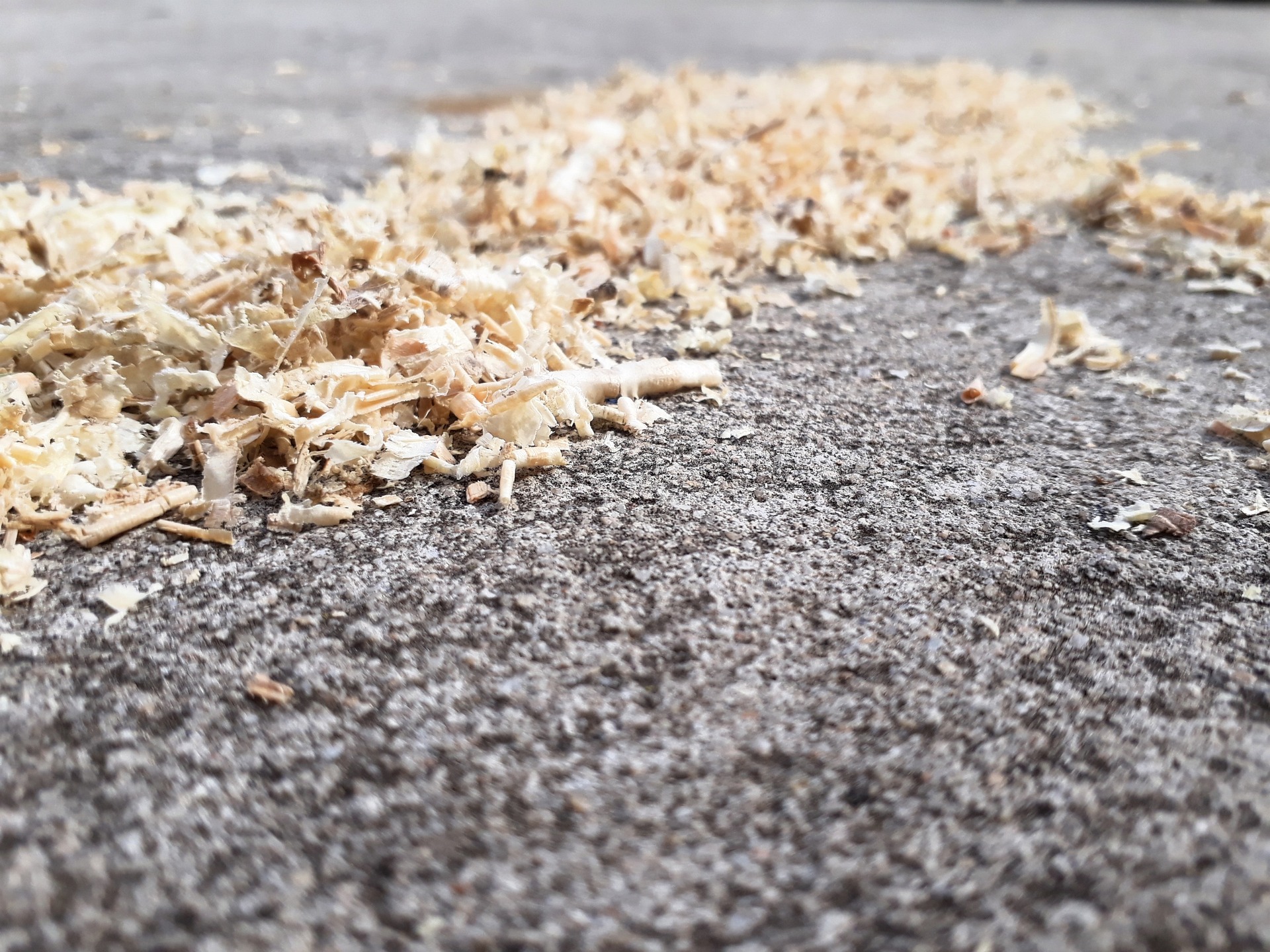
Of course, tree borer insects are not the only creature to create potential holes in trees. But when you look for holes in your bark, you’ll notice that they are disorganized with no sort of pattern. This is quite different from a sapsucking woodpecker, which is likely to leave holes in a horizontal line. Woodpeckers are routine-oriented animals, and typically visit the same trees every day. They do not cause harm to your trees.
If tree borer insects have done some significant damage, you might also start to notice signs of a health problem with the tree. As the flow of water and nutrients may be weakened, the structure of the tree might struggle. You may even notice parts of the bark falling off.
There are certain tree species that are going to be much more prone to a problem with tree borer insects. In fact, we’d go as far as saying, if you have one of these species of trees on your Louisville property, you’re going to have a problem with tree borer insects. It’s really not a matter of “if,” but “when.”
If you have a Dogwood tree on your property, then you are likely to be impacted by the Dogwood Borer. This member of the clearing moth family is one of the worst enemies of the dogwood species.
Dogwood Borers are most likely to embed themselves in lumps at the base of the tree trunk (formed from undeveloped roots) or in bark wounds where they have easy access to your tree. These areas often take on a reddish color and appear wet as they are dripping with sap.
Emerald Ash Borers are a highly destructive pest that preys on Ash trees. These borer beetles arrived from Asia back in the 1990s and have become a significant problem as they feast on North American native Ash trees. These pests act quickly and can be incredibly destructive.
Emerald Ash Borers are large in their adult form and you may spot them. But you might also see D-shaped exit holes that are left when the adult beetle leaves the tree. Or, you may see Sh-shaped tracks caused by the back-and-forth motion the larva takes during feeding.
The White Pine Weevil has been called the most destructive pest of the eastern white pine in North America. It can also attack Colorado Blue, Norway, Austrian, Douglas-fir, and other pines. Most of the damage is done by these pests in the larval stage when they chew and burrow.
Finally, we want to mention the Root Collar Borer which is a common enemy of the Yellow Poplar, and occasionally other magnolias. This tree borer insect bores into the inner bark (typically close to the ground where the bark tends to be damper and softer).
A heavy infestation of the Root Collar Borer can eventually kill the tree.
There are a few ways to address tree borer insects and these include both preventative and curative solutions.
First and foremost, if you have one of the tree species mentioned above, then it absolutely does make sense to think about preventative treatments. Those four types of borers are highly aggressive (and those species are highly susceptible), so you want to do what you can to be proactive.
It’s also important to mention that proper care of these tree species (and others) can also make a world of difference in managing pest problems (in general). The healthier the tree, the better it can stand up to problems. But a tree that is already unhealthy is much more likely to be ravaged by a pest.
Properly fertilizing, watering, and mulching your trees can definitely play a role in their health.
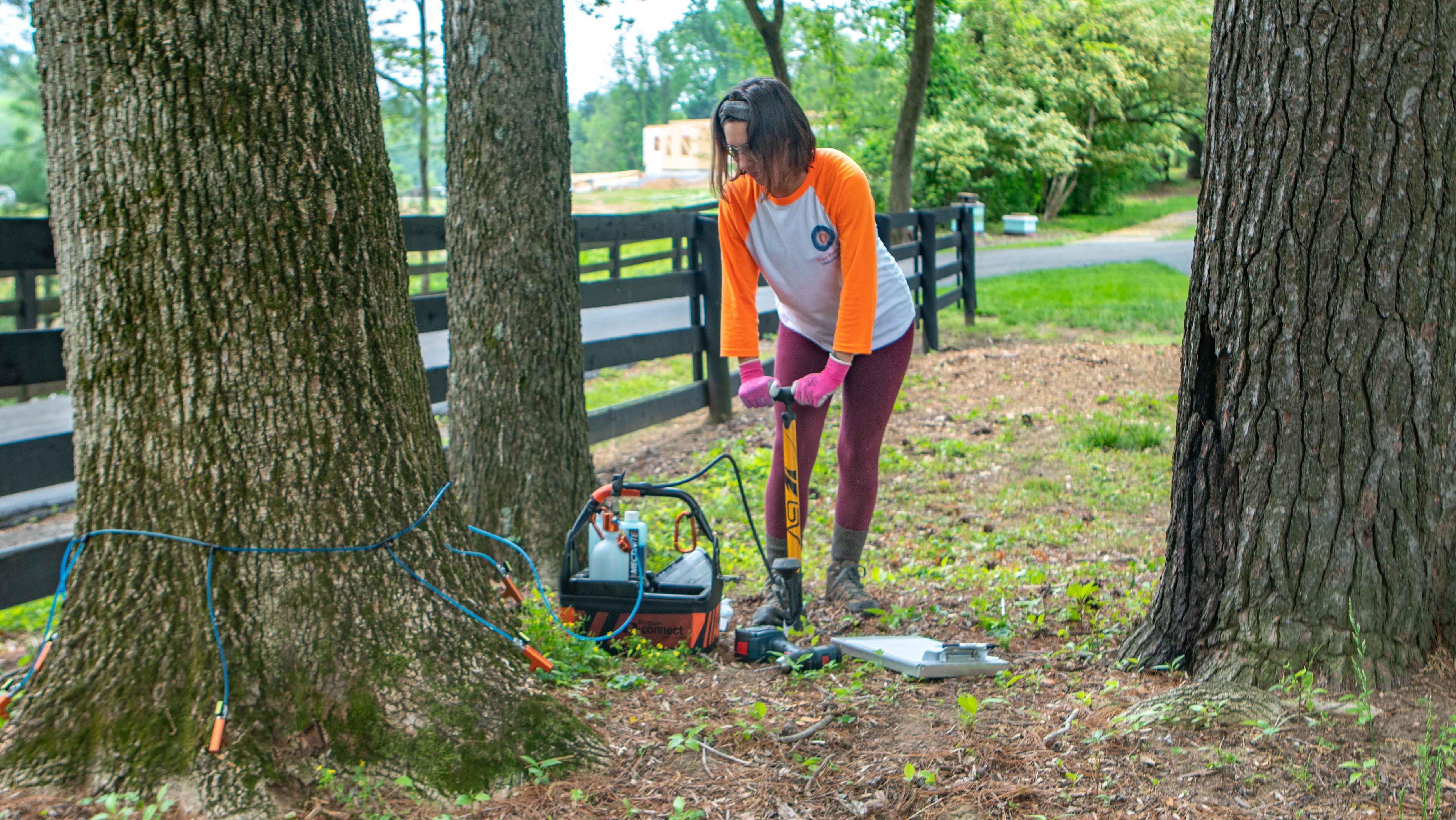
As far as tree borer killer products, there are also curative treatments that can help you deal with an existing problem. There are products that are contact killers (sprayed on the surface of the bark that will kill on contact) and there are products that are systemic. Systemic injections are taken in by the tree and then only kill the insects when they are feeding on the tree.
Both have their place in dealing with tree borer insects and sometimes both are warranted on the same tree. A highly aggressive pest definitely needs a long-lasting systemic injection.
At the end of the day, you just want to know that your trees will survive whatever is thrown at them. Tree borer insects are just one potential threat out there in the landscape. It can actually be pretty complicated to understand what exactly might be attacking your tree as there are also many diseases and environmental stressors.
The good news is that you don’t have to figure it out on your own! That’s exactly why you want a tree care professional in your corner.

They’ll know all the signs of potential tree problems as well as what to do about them.
With an expert on your side, you can let go of these worries and instead get back to enjoying your property. You’ll be able to feel confident that tree borer insects and other potential problems won’t stand in your way.
If you’d like to learn more about plant health care for your Louisville home, get in touch, get your quote, and get back to enjoying your yard.


